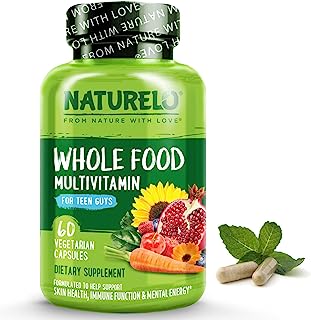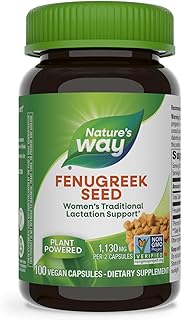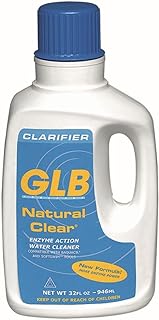When it comes to healing wounds, liquid protein is really important. Buying liquid protein for wound healing requires looking carefully at things that affect how well it works. This important step involves understanding things like how much protein is in it, what ingredients are used, how easy it is to drink, and how nutritious it is overall. By thinking about these basics, we can figure out what factors are most important for helping wounds heal better.
See our guide to the best liquid protein for wound healing.
Protein content
When choosing liquid protein for wound healing, it’s important to pick products with lots of protein. Protein helps the body repair and grow new tissue, which is crucial for healing wounds quickly. Choosing liquid protein with important amino acids like arginine, lysine, and glutamine can help the body heal even faster. These amino acids not only help make collagen, they also boost the immune system, reducing the chances of infections that can slow down healing.
It’s important to check the protein content of liquid supplements because not all products work the same for healing wounds. Look for options with a good mix of proteins that provide all the amino acids needed for tissue repair. In short, choosing high-protein liquid solutions with essential amino acids can speed up wound healing by giving the body the right tools it needs to repair damaged tissue and recover faster.
Amino acid profile
When choosing liquid protein for wound healing, it’s important to consider the amino acid profile. Amino acids are like the building blocks of protein and play a big role in helping the body heal. A liquid protein with a good balance of essential amino acids can really help with tissue repair and speed up the healing process. One amino acid called leucine is especially good at helping muscles heal after an injury.
Having a wide range of amino acids in the liquid protein is key for effective healing. Amino acids such as arginine and glutamine are known for boosting the immune system and aiding in tissue recovery, so it’s good to look for these in a liquid protein. Choosing a product that includes a variety of amino acids shows a commitment to giving your body the right nutrients it needs to heal well. Understanding how amino acids work in liquid protein can help you make choices that will help you heal faster.
Digestibility
Choosing a liquid protein supplement that is easy to digest is crucial for helping wounds heal faster. When proteins are easily broken down, the body can absorb important nutrients needed for healing more efficiently. This not only speeds up the healing process but also reduces digestive issues that could slow down recovery.
In addition, selecting a liquid protein that is gentle on the stomach is important for people with health problems. By picking a highly digestible option, individuals can get the nutrients they need without straining their digestive system. Better digestibility helps the body absorb essential amino acids and other nutrients required for wound repair, as well as promotes good gut health, creating a better environment for healing.
Understanding the importance of digestibility in liquid protein supplements for wound care is a proactive way to support the body’s natural healing abilities and can make a big difference in the recovery process.
Allergen potential
When choosing a liquid protein supplement for wound healing, it’s important to consider potential allergens. Some liquid protein products contain common allergens like soy, dairy, and gluten, which can cause negative reactions in sensitive people. To avoid any discomfort or complications during the healing process, consumers should carefully read product labels and choose options that are free from allergens.
Opting for hypoallergenic liquid protein supplements ensures that people with dietary restrictions or allergies can still benefit from the healing properties without the risk of adverse reactions. This not only leads to better health outcomes but also promotes inclusivity in the health and wellness industry.
Choosing liquid protein products that are allergen-free can support the healing process without worrying about allergic reactions. Manufacturers who are transparent about allergens and offer a variety of hypoallergenic options help consumers make informed choices for their health. Providing allergen-free options caters to a wider audience and promotes inclusivity in supporting wound healing and overall health.
Investing in allergen-conscious liquid protein supplements shows a commitment to consumer safety and a focus on offering high-quality products that meet individual health needs and preferences.
Taste and palatability
When you’re buying liquid protein supplements to help heal wounds, it’s important to consider how they taste. While you might be focused on the nutrients and healing properties of the product, how it tastes is also really important. If a supplement tastes bad or isn’t enjoyable, people might not want to use it every day, which could slow down their recovery. The taste of these supplements is crucial for making sure people stick to their treatment and feel satisfied with it.
A liquid protein supplement that not only gives you the nutrients you need but also tastes good can make a big difference in your healing process. If these supplements have flavors that people like, it can help them feel better while they’re getting treatment for their wounds. Taste isn’t just about what someone likes; it’s a key part of creating a positive and helpful environment for people who are trying to get healthier. In this case, the experience of drinking liquid protein for wound healing is connected to its health benefits, showing why it’s important to take a holistic approach to patient care.
Conclusion
In the field of wound healing, using liquid protein solutions shows promise for helping wounds heal faster and promoting new tissue growth. As we explore new ways to improve medical care, using liquid protein in wound treatment is an important development in making treatment more effective. By using protein-rich solutions, we can speed up the healing process, strengthen the body’s immune system, and help patients recover better. Liquid protein has the potential to transform wound care and is an important advancement in modern healthcare, offering hope for those in need of advanced solutions for healing.


